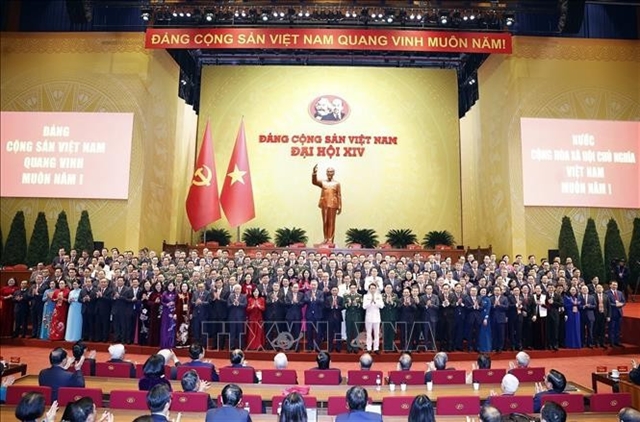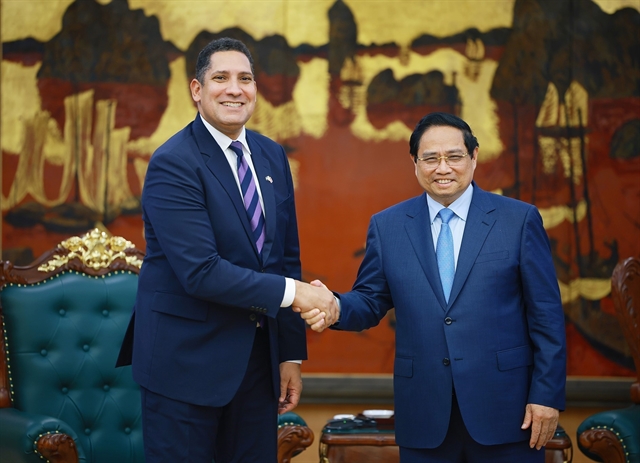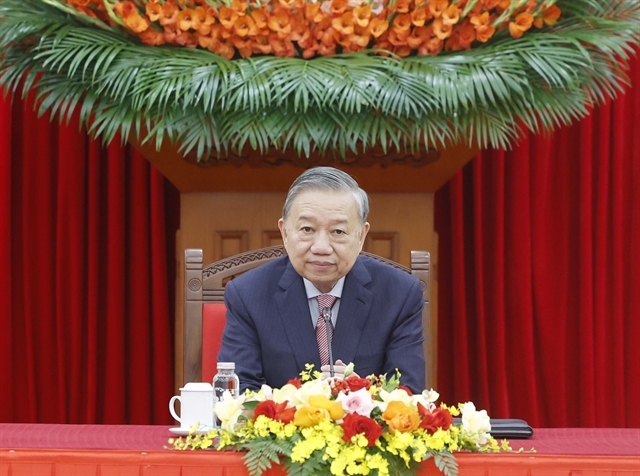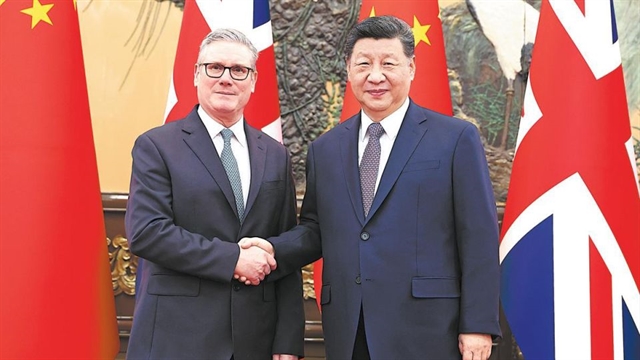 World
World
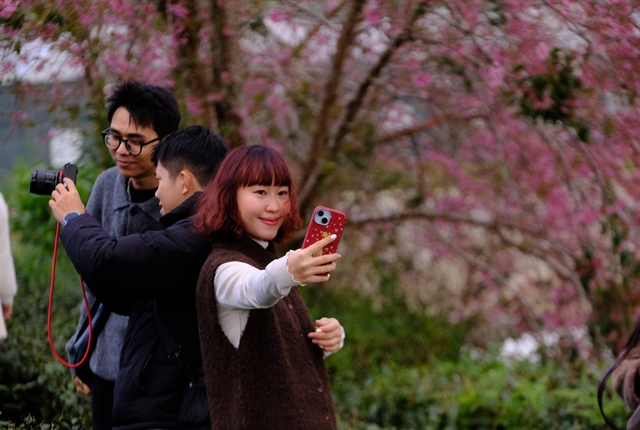
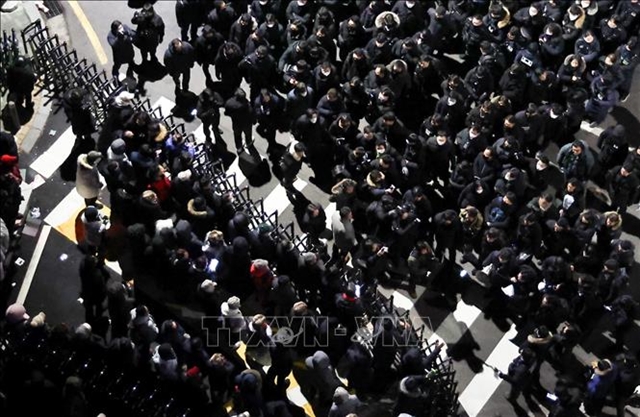 |
| Investigators from police and the anti-corruption agency confront security guards and lawyers (on left side) for impeached President Yoon Suk Yeol at the entrance of his official residence in Seoul on January 15, 2025. — YONHAP/VNA Photo |
SEOUL — Of all the conflicts in society, South Koreans are most concerned about political conflict between liberals and conservatives, a 2023 report by a state-run think tank showed Wednesday.
In Korea Institute for Health and Social Affairs' survey of 3,950 people aged 19-75 conducted between June and August 2023, 92.3 per cent of the respondents said they thought the political conflict between progressives and conservatives was a serious issue, slightly up from 87 per cent who thought so in the 2018 survey.
The Korea Health Industry Development Institute has been conducting the survey on social conflict and social integration every year since 2014.
This survey was conducted a year and a half before the current political crisis, sparked by by President Yoon Suk Yeol's botched imposition of martial law on December 3, which led to mass protests both in support of and against his impeachment and criminal investigation.
In the 2023 survey, political conflict between progressives and conservatives topped the list of social conflicts surveyed, surpassing conflict between full-time workers with permanent job security and those without, which 82.2 per cent of respondents said was the most serious.
Management-labour conflict and wealth inequality between the rich and the poor followed, at 79.1 per cent and 78 per cent, respectively, indicating that economic polarisation is still a major issue in Korean society in multiple ways.
Political conflict was found to entail substantial complications in human interactions. Over half of respondents, 58.2 per cent, said they would not date or marry a person with different political leanings. Another 33.02 per cent said they would not have drinks with a friend or acquaintance who did not share similar political beliefs.
Less willingness to have drinks with, date, marry or participate in civic and social group activities with people of different political leanings was found among women, senior citizens, low-income respondents and those with only middle-school levels of education.
Gender conflict on its own, however, was perceived to be relatively less serious in the 2023 KIHASA survey, with only 46.6 per cent of the respondents saying they are concerned about it.
Respondents expected the political conflict in Korean society to worsen. When asked if a certain type of social conflict was likely to become more serious in the next 10 years, 87.66 per cent picked political conflict between progressives and conservatives, while 79.95 per cent chose conflict between the rich and the poor, and 75.84 said management-labour conflict would become more serious.
“In order to alleviate social conflict," the research team said, "It is necessary to establish a legal and institutional foundation that allows the parties involved, other stakeholders and citizens to participate in the process of adjusting and managing such social conflict.”
The majority of the people - 56.01 per cent - who participated in the survey believed that the government should play a crucial role in resolving these conflicts in Korean society, followed by 22.04 per cent who picked political parties and the National Assembly, and 9.16 per cent who said individuals should play a key role. But only 41.9 per cent of respondents believed that the government was capable of resolving such conflicts, while 22.6 per cent trusted the National Assembly to accomplish this task. — THE KOREA HERALD/ANN

